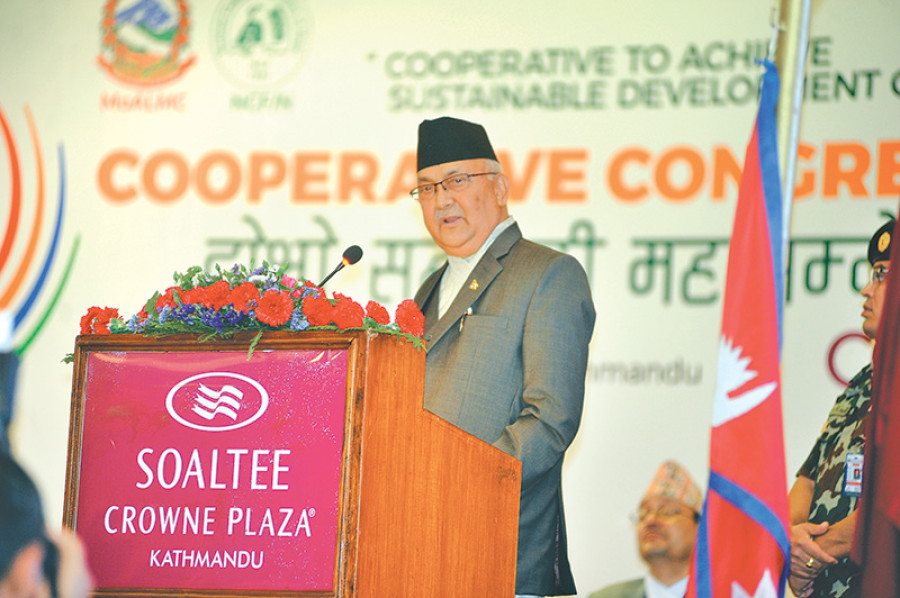Money
Co-ops urged to devise new business policies
Cooperatives should devise new business policies besides switching to production and job oriented activities instead of sticking to financial and distribution related businesses, stakeholders said.
Cooperatives should devise new business policies besides switching to production and job oriented activities instead of sticking to financial and distribution related businesses, stakeholders said.
Speaking at the second Cooperative Congress that kicked off in Kathmandu on Wednesday, they said that policy measures were needed to ensure transparency and accountability in cooperatives because the sector can play an effective role in mobilising resources at the local level.
More than 1,000 delegates from 22 countries are taking part in the two-day international conference jointly organised by the Ministry of Agriculture, Land Management and Cooperatives and the National Cooperative Federation (NCF). Inaugurating the event, Prime Minister KP Sharma Oli said the role of cooperatives in the country’s development had weakened because of some cooperatives violating disciplinary norms in their internal management system. “Failing to adopt good practices in the self-regulating community organisations can lead to adverse outcomes,” Oli said.
There are 34,512 primary cooperatives and 69 district cooperative associations across the country. According to the Department of Cooperatives, cooperatives hold Rs302.16 billion in deposits and contribute nearly 18 percent to the GDP.
Of the total number of cooperatives, more than 13,500 are savings and credit cooperatives, a majority of whom are based in urban areas. “The government has been mulling to devise policies to promote capital formation in rural areas,” Finance Minister Yubaraj Khatiwada said. “The government is ready to assist in the capacity building of cooperatives.”
Khatiwada said the government had planned to improve the quality of services by mobilising cooperatives. “The government is ready to implement policies to help cooperatives revise their institutional structures so that they can invest more funds in infrastructure, food security, airport construction and hydropower, among other sectors.”
Utilising local skills and remittance sent home by migrant workers, cooperatives can engage in poverty reduction and production and distribution of renewable energy sources, the finance minister said.
The Cooperative Congress has aimed to create a roadmap by identifying problems facing the sector to achieve the UN Sustainable Development Goals (SDGs), also known as the Global Goals, a universal call to action to end poverty.
UNDP Country Director Renaud Meyer said the UN had given priority to achieving the SDGs through cooperatives. According to Meyer, cooperatives can play a key role in socio-economic development at the community level. “The cooperatives business can contribute to gender equality, reduction in inequality, partnership, good governance, food security and poverty reduction, which are among the 17 key indicators of SDGs.”
As per the International Labour Organisation (ILO), there is a huge skill gap in Nepal’s labour market that has directly hit productivity and job creation. “Cooperatives can assist in achieving the desired economic growth through job creation at the grass roots level while eliminating the use of child labour and human trafficking,” ILO Country Director Richard Howard said.
The participants criticised cooperatives for failing to go into commercialisation, develop value chains and generate large investments. Kamala Bista, chairman of Kala Samaiji Cooperative, Dadeldhura, urged the government to amend the existing Cooperative Act that restricts large investments promoted by cooperatives and subsidise farm insurance to expand the cooperative business.




 9.12°C Kathmandu
9.12°C Kathmandu













